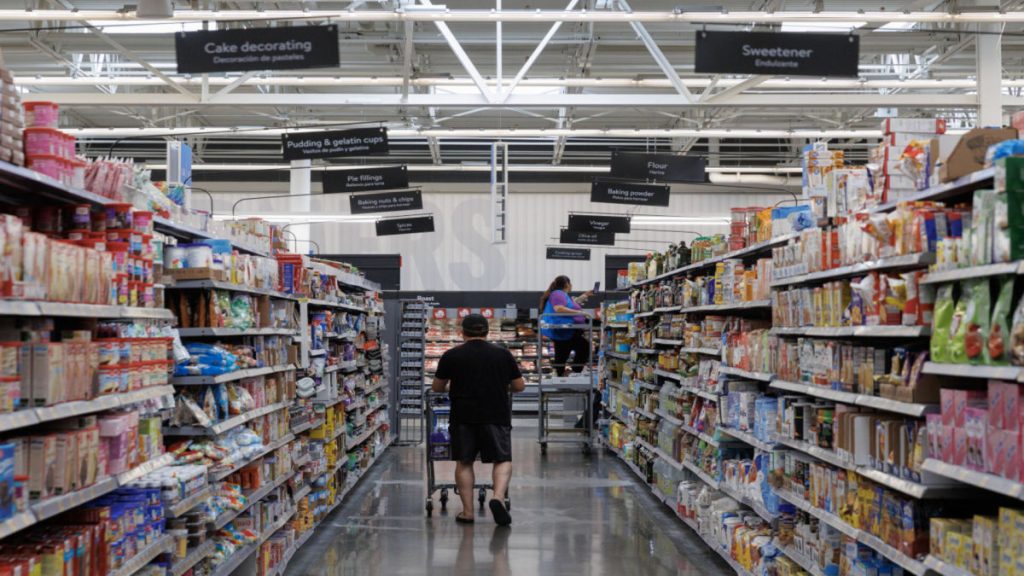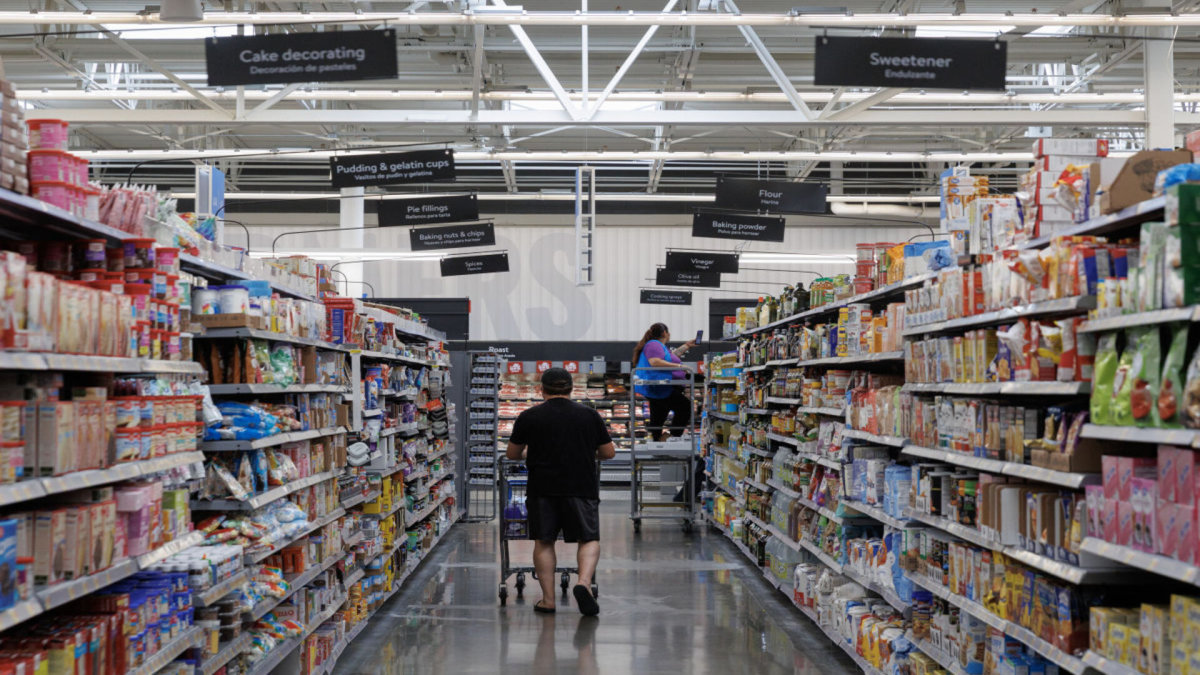Walmart doubles down on harsh tactic to shrink threat of tariffs

Many retailers across the country are preparing to face the potential negative impact President Donald Trump’s tariffs could have on their sales.
Tariffs are taxes companies pay to import goods from overseas, and the extra cost is often passed down to consumers through price increases.
⏰ Get expert insights and actionable trade alerts from veteran investing experts and hedge fund managers. Join TheStreet Pro today and get the first month FREE 🤑
On March 4, Trump imposed 20% tariffs on all goods imported from China and 25% tariffs on all goods imported from Mexico and Canada.
Related: Walmart makes unexpected move to minimize threat of tariffs
On April 2, which Trump dubbed “Liberation Day,” he raised the tariffs on imports from China to 34%. He also added 20% tariffs on imports from the EU, 46% on Vietnam and 32% on Taiwan to free the U.S. from its reliance on imported goods.
Walmart (WMT) , the largest retailer in the U.S., previously warned that tariffs could cause it to raise prices, a move that threatens to drive away frugal customers who are already battling inflation and higher costs of living.
“We never want to raise prices,” said Walmart Chief Financial Officer John Rainey in an interview with CNBC in November. “Our model is everyday low prices. But there probably will be cases where prices will go up for consumers.”
Walmart refuses to back down after backlash
Ever since Trump enforced his most recent round of tariffs in March, Walmart has quietly been asking some of its suppliers in China to cut their prices by up to 10% per round of tariff, which would shift the burden of tariffs onto those suppliers.

Bloomberg/Getty Images
The move from Walmart received a harsh response from China. Last month, China TV broadcaster CCTV posted on its official social media account, Yuyuantantian, that Walmart’s request was “unreasonable.”
“Walmart’s demand for Chinese suppliers to bear the full tariff burden is unreasonable and disrupts fair competition and international trade order,” reads the post.
Chinese manufacturers also flagged on social media that Chinese companies “have no room to lower prices in response to US tariffs.”
Chinese officials later confirmed that they had met with Walmart executives to discuss the situation.
However, despite this effort, Walmart is still pressuring suppliers to cut their prices, according to a new report from Bloomberg.
Related: Target makes controversial move to dodge high tariff costs
Walmart’s negotiations with suppliers aren’t just limited to countries of origin, but several product categories.
The retail giant’s increased effort to dodge the high cost of tariffs comes after Walmart CEO Doug McMillon said during an earnings call in February that the company is well-equipped to handle tariffs.
“Tariffs are something we’ve managed for many years, and we’ll just continue to manage that,” said McMillon. “We’ve got a great team. We know how to do that. We can’t predict what will happen in the future, but we can manage it really well. And we’re wired to try and save people money.”
Walmart’s competitors follow its footsteps
Large retailers such as Target and Costco have also recently followed Walmart’s lead in negotiating with suppliers to lower costs.
Target is reportedly asking its suppliers to split the costs of tariffs in half. Costco’s negotiations with suppliers are also raising concerns.
More Retail:
- AT&T quietly issues stern warning to customers
- Sam’s Club makes a big change to a beloved membership perk
- GameStop announces risky move amid store closures
One Costco supplier told the Financial Times last month that tariffs will have a more significant financial impact on smaller suppliers than on larger ones.
“The big ones, they have the muscle to do it,” said the supplier. “What do you do if you’re us? You’re screwed or you’re screwed.”
Many retailers are aware that if they increase prices in their stores as a result of tariffs, it could harm their sales as many consumers have grown to become price-conscious over the past few years.
According to a recent market pulse survey from InMoment, 56% of consumers expect prices for goods and services to increase as a result of Trump’s tariffs.
In response to these expected price hikes, 60% of consumers said they are contemplating changing their shopping behavior, with more expecting to shop less as opposed to shopping more.
Related: Veteran fund manager unveils eye-popping S&P 500 forecast
#Walmart #doubles #harsh #tactic #shrink #threat #tariffs






